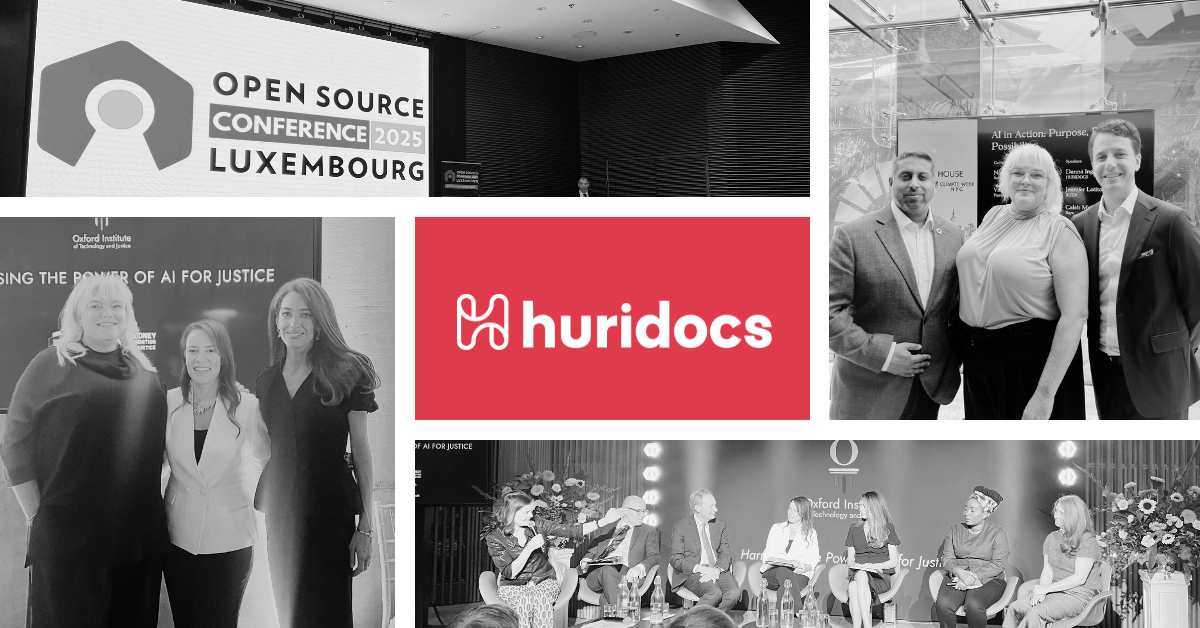Over the past several weeks, I’ve had the privilege of engaging with a wide range of partners, funders, academics, and peers across the human rights, technology, and civil society sector. These conversations have left me grounded, motivated and more convinced than ever that we are standing at a turning point. To face this polycrisis with purpose, our sector needs to act urgently to challenge the status quo and transform our work with intent.
“These weeks of exchange have reinforced for me that the challenges we face such as the shrinking civic space, criminalisation of activism, resource scarcity, and rapid technological change are all deeply interconnected. Yet they have also reminded me that solidarity, imagination, and persistence weave civil society together and remain our most powerful tool.”
The need to act urgently
The strongest impression I’ve taken away is the urgency of this moment. The landscape around us is shifting rapidly on many levels: politically, technologically, and financially. The traditional NGO model is under increasing strain, and yet the need for credible, rights-based voices and infrastructures has never been greater. If we are to remain relevant and resilient, we must be willing and able to evolve.
For HURIDOCS, this means leaning fully into the next phase of our work, which includes finalising our new strategic plan, adapting Uwazi to a more accessible, tiered model, and continuing to build on and invest in the partnerships and systems that make information a force for justice.
Agility, courage, and care
A recurring theme in many of these discussions was the need for agility in the face of uncertainty. As a small organisation, our strength lies in our ability to move quickly, adapt nimbly, take calculated risks, and think creatively. We can’t afford to cling to old structures simply because they are familiar; instead, we must ground ourselves in purpose and act with courage.
At the same time, impact is not only measured by what we achieve externally. It also depends on how we show up for each other and how we sustain a culture that is collaborative, caring, and purposeful. A strong and supportive organisational home allows us to take on ambitious challenges beyond our walls.

Technology and transformation
Across the different forums I joined, one message came through clearly: technology for social good cannot be treated like traditional programming. Building tools that serve the public interest requires flexibility, long-term investment, and a willingness to experiment. True innovation means creating the space to “fail forward,” learn, and adapt over time.
This also means pushing back against the idea that nonprofits are “behind” simply because they move cautiously. In the human rights field, caution is not a weakness; it is an ethical stance. We are right to question the power dynamics and sustainability of emerging technologies like AI. But we also have a responsibility to shape these tools so that they serve, rather than undermine, human dignity.

Staying grounded in universality and hope
At a time when polarisation and fragmentation threaten to divide movements, many in our sector are calling for a return to shared purpose and a collective reaffirmation of why human rights matter and how we can defend them, together. The principle of universality remains as relevant as ever, but it must be reimagined in ways that reflect diversity, inclusion, and hope. I suggest reading Universal: Renewing Human Rights in a Fractured World by Alex Neve for inspiration on this reimagination.
Moving forward with purpose
These weeks of exchange have reinforced for me that the challenges we face, such as the shrinking civic space, criminalisation of activism, resource scarcity, and rapid technological change, are all deeply interconnected. Yet they have also reminded me that solidarity, imagination, and persistence weave civil society together and remain our most powerful tools.
As HURIDOCS looks ahead, we will continue to adapt, to collaborate boldly, and to build the digital and human infrastructures that allow truth to be documented and justice to be pursued. Change is here, but so is opportunity. And we are ready to meet it.
*This article was prepared with the editorial assistance of AI but all information, thought and analysis was done and reviewed by Danna Ingleton.
